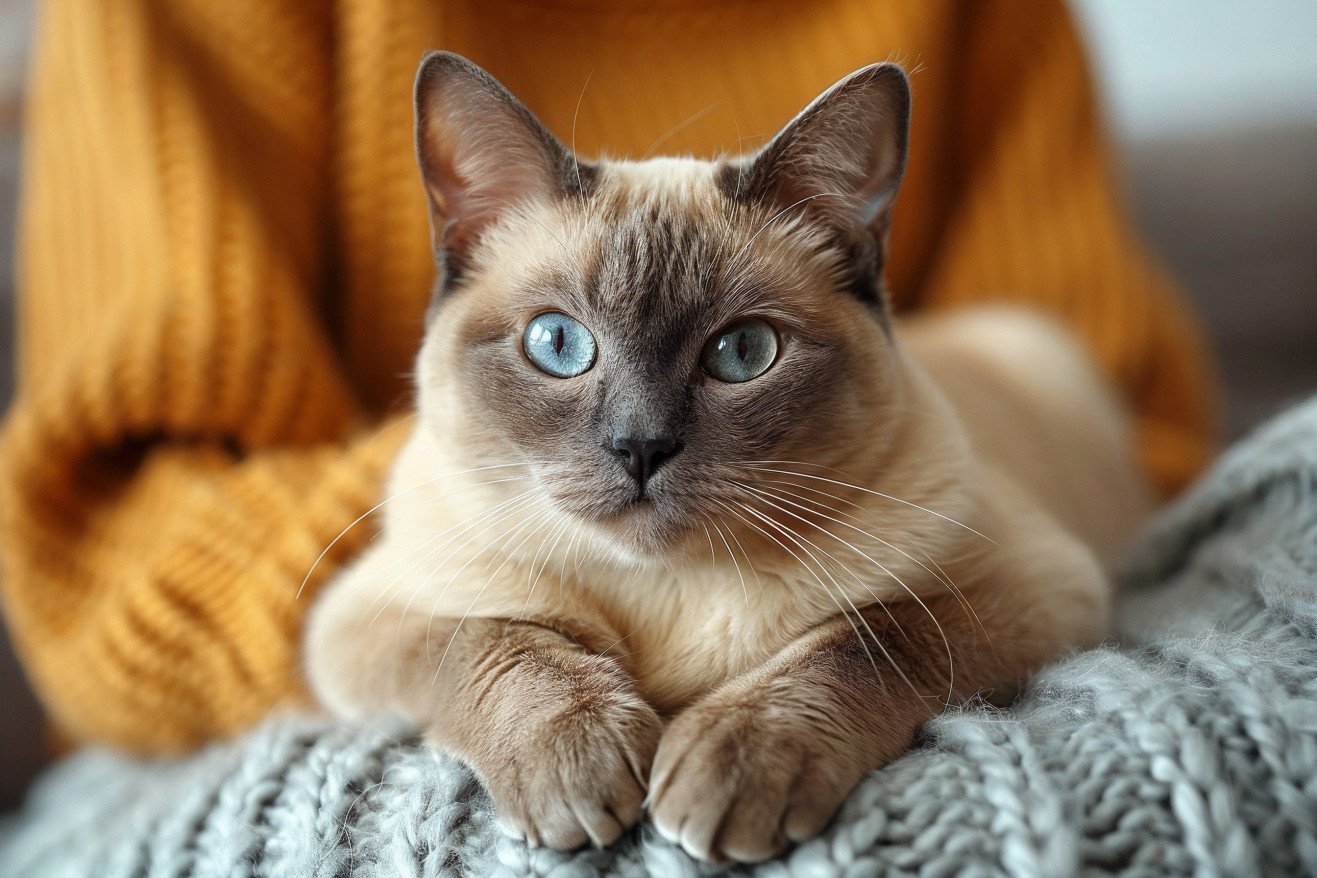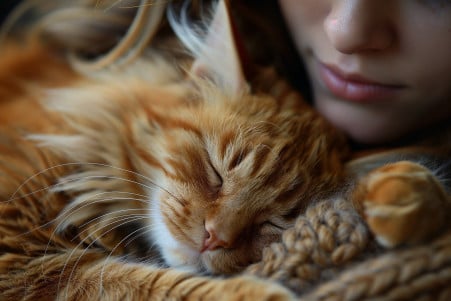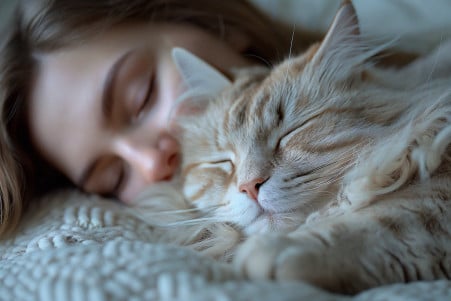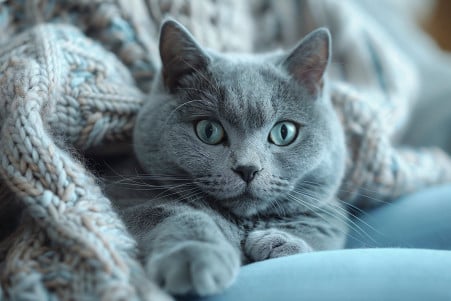Why Does My Cat Walk All Over Me? Reasons Explained
10 May 2024 • Updated 10 May 2024

If you have a cat, you've probably asked yourself why your furry friend insists on walking all over you, especially when you're in the middle of something. Cats walk on their humans to bond and show affection, and to mark their territory. They also like the warmth and softness of our bodies and the surfaces we're lying on, and they just want to be close to us and have our full attention.
To get to the bottom of this interesting cat behavior, we'll explore the findings of animal behaviorists and psychologists. Their studies have revealed some interesting reasons why cats claim their humans in such a personal way. You'll learn more about what drives your cat's behavior and how you can help them find other ways to meet their need for closeness.
Why does my cat walk on me?
Why Do Cats Knead? The Psychology Behind Kneading
Cats knead, or "make biscuits," because of a natural, instinctual behavior that's a holdover from nursing as kittens. WebMD explains that when kittens are born, they knead their mother's belly to stimulate milk flow. This kneading motion then becomes associated with comfort and relaxation early in life.
Kneading can also be a way to show that a cat is happy and to mark their territory. International Cat Care points out that adult cats will knead soft surfaces like blankets or their owners when they're feeling secure and comfortable, and they'll leave behind scent marks from the scent glands in their paws, which shows they're part of their trusted group.
In addition, some cats will drool while they knead, which is a throwback to their days of nursing. Purina says that this cute "making biscuits" behavior may be an instinctual behavior from their wild ancestors who kneaded leaves and grass to make a soft bed.
While it may look like your cat is just walking in place, kneading is actually a repetitive motion of pushing their paws in and out in a certain pattern. Scientific American explains that it can also help strengthen the bond between cats and their owners because the behavior that starts with nursing is transferred to show affection for their human family. So if your cat kneads you, take it as a sign that they're comfortable with you and love you.
Why Cats Like to Sleep on Their Humans
Cats sleep on or near their humans to feel safe, secure, and as part of the social group. TreeHugger explains that cats have scent glands that release pheromones all over their body, and marking humans with these pheromones means that they are part of the cat's in-group, a behavior learned in groups of cats in the wild to distinguish members of the pack from non-members.
The warmth and familiar sounds like breathing help cats relax and sleep better when with their owners. The Wildest points out that cats also seem to find sleeping on top of their person to be the most comfortable, and the warmth and rhythmic sounds of a human's heartbeat and breathing can be soothing.
Sleeping on owners is rooted in kittenhood instincts of sleeping together with mothers and littermates. Perfect Fit notes that especially when there are no other cats in the household, humans may serve as a stand-in in this case, as kittens are used to nursing and sleeping in a group.
Cats may even change their sleeping patterns to be with their owners, whom they see as part of their pride. Rover.com explains that cats are most active at night and in the early morning, but some will adjust their schedules to match their humans' in order to get more time together.
How to Stop Your Cat From Walking on You
While your cat walking on you is often a sign of affection, it can also be an undesirable behavior. Luckily, there are ways to train your cat to stop. wikiHow Pet suggests that the first step is to use positive reinforcement training. When your cat gets off of you, give it a treat to help reinforce the behavior.
Another way to discourage your cat from walking on you is to make sure that you're providing it with plenty of other cat-friendly spaces in your home. The RSPCA says that you should make sure that your home has high resting places and "cat zones" to help your cat have other places to go that will satisfy its natural instincts. You can also try to distract your cat by playing with it, grooming it, or feeding it when it's most likely to walk on you.
Finally, you can use deterrents like double-sided sticky tape on surfaces that your cat likes to walk on, but the RSPCA recommends against using any kind of punishment. With a little patience and a lot of positive reinforcement, you can train your cat to behave while still enjoying the bonding experience that comes with your cat walking on you.
Cat Ownership May Have Health Benefits
While cats walking on their owners may be a bit of a mystery, there is evidence that cat ownership and the bonding that comes with it can have a number of health benefits. Harvard Health reports that interacting with cats can help lower stress, anxiety, and blood pressure in people. In addition, the vibrations from a cat's purr may even help with healing and increase bone density, since research has found that the frequency of a cat's purr falls in a range that has these effects.
Moreover, a study in Current Hypertension Reports found that cat owners have a lower risk of heart disease and stroke than people who don't own pets. This is likely because cats can help reduce the body's stress response. In addition, the Lone Tree Veterinary Medical Center reports that women are more likely to bond with their cats, which may increase the benefits.
So while the reasons cats walk on their owners may not always be clear, the evidence shows that this behavior and the bond it represents can have a positive impact on human health and well-being.
Conclusion: What to Know About Your Cat's Walking and Sleeping Habits
While it can be annoying to have your cat walking and sleeping on you, it's important to remember that these behaviors are rooted in your pet's natural instincts and drives. Your cat's walking and sleeping habits are a way to show you they care, claim you as their territory, and keep warm and secure. While these behaviors can be inconvenient, they also help your cat build a bond with you.
Catster notes that cats walk on their owners because they love them, trust them, want to claim ownership, and are seeking attention, or because they simply find their owners to be a comfortable place to sit. Meanwhile, Rover.com explains that cats sleep on their owners to keep warm, claim their territory, feel secure, and even bond with their owners.
While these behaviors can be difficult to manage, pet parents can use positive reinforcement to change them. As wikiHow Pet explains, pet parents can train their cats to get off of them by rewarding them when they do, providing them with other places to rest, and distracting them with play or food. With time and effort, pet parents can learn to work with their cats' instincts while also setting boundaries.
Interestingly, research has shown that the companionship of cats, including their walking and sleeping habits, may even benefit their owners' health. For example, studies have shown that owning a cat can reduce stress, blood pressure, and the risk of heart disease.
In the end, learning about the reasons for cats' walking and sleeping habits can help pet parents understand and appreciate these behaviors as a way for their pets to show them affection, rather than just an inconvenience. By using positive reinforcement and environmental enrichment to meet their cats' needs, pet parents can build a more fulfilling relationship with their feline companions.


